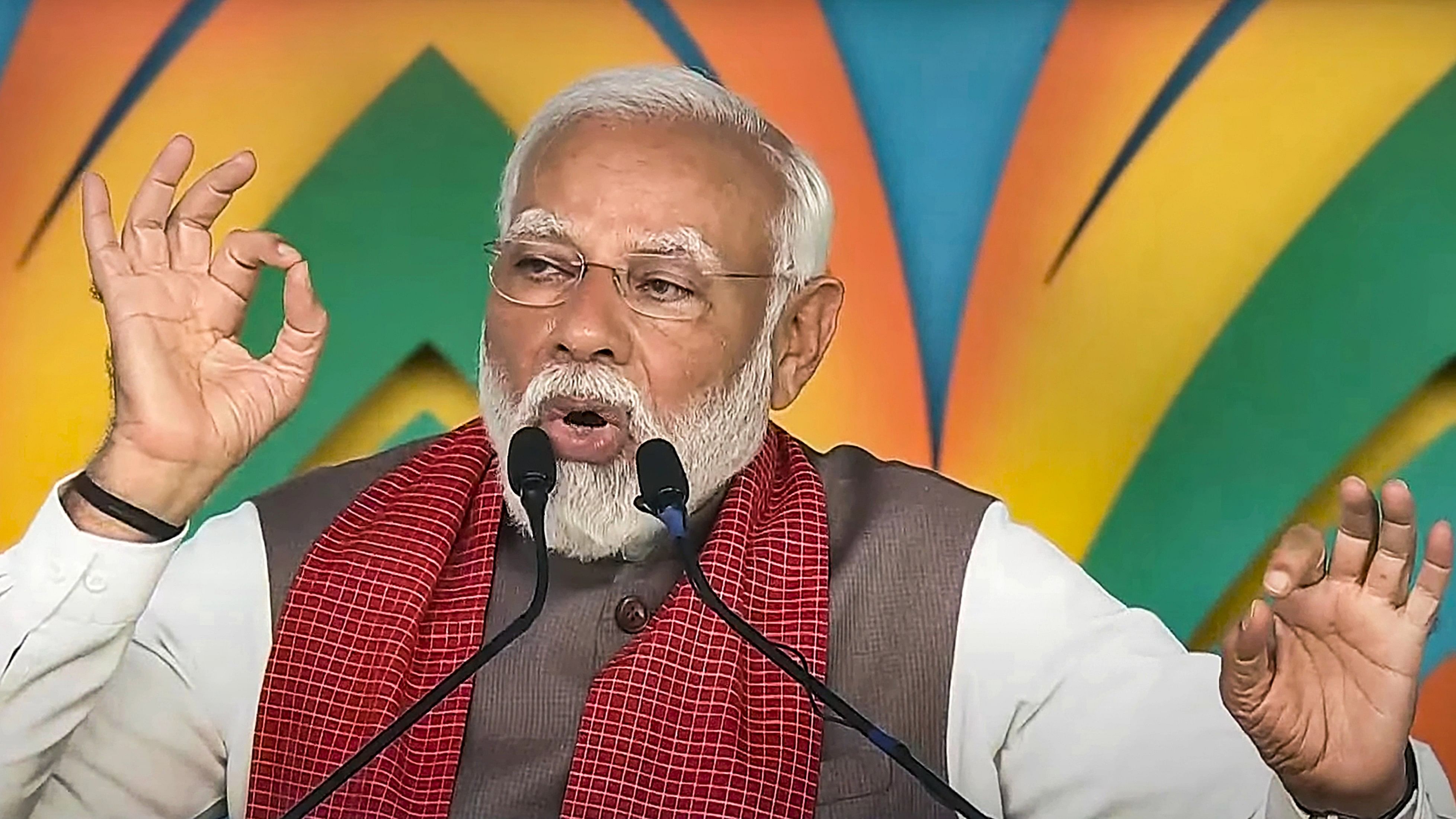
The government wants to increase the domestic production to cut imports.
Credit: PTI Photo
Betul (Goa): Prime Minister Narendra Modi on Tuesday courted top oil and gas executives, showcasing opportunities the world's fastest growing economy offers and the reforms that his government has made particularly in exploration and production.
Modi met about 20 top executives of firms ranging from ExxonMobil and BP to QatarEnergy and French giant TotalEnergies, discussing energy scenarios as well as investment opportunities, sources in know of the development said.
He referred to the recently launched exploration licensing round to seek global giants to invest in finding and producing oil and gas in the country.
The sources said he spoke on reforms in the oil and gas sector, including a shift from purely revenue-based bidding for oil and gas areas to a exploration-focussed bidding.
India is the world's third largest energy consumer and imports 85 per cent of its needs. The government wants to increase the domestic production to cut imports.
Indian CEOs attending the meeting included Vedanta Chairman Anil Agarwal as well as executives from Reliance Industries Ltd.
Refusing to divulge details of the meeting, Agarwal talking to PTI said literally everybody from the oil and gas industry were there.
Each CEO made a small submission and the prime minister wrapped up the discussions.
"In my submission, I stated that India is the best place to invest globally. Reforms undertaken in recent years have made it attractive and global majors should come and invest in exploration and production in India," he said.
Vedanta, he said, is looking to up its investment by USD 4 billion to double oil and oil equivalent gas production to 300,000 barrels per day in 3 years.
"India is the only country which has the resources as well as the demand. So whatever we produce here can be consumed here," he said.
With lower taxes and mining lease for the entire economic life of the fields, investments can flow in, he said.
"We have to produce more for a self-reliant India and we have everything in place -- a favourable policy climate, right regulatory environment and a supportive government," he said.
Modi has been using the IEW as well as its previous avatar the CERAWeek India to hold brainstorming meetings with global oil and gas experts and CEOs.
He has held more than half a dozen such meetings.
The meetings and other such feedback mechanisms had led to the government doing course corrections on some of its policies, particularly the exploration licensing policy and natural gas pricing rules.
The government had, going against the industry advise, brought in a revenue sharing model for allotting oil and gas acreage.
Under the 2016 policy, bidders offering the highest share of oil and gas to the government were allotted the blocks but the regime failed to attract big names to the exploration scene as companies preferred risks to be covered.
Two years later, the government reversed it and went back to allocating blocks to companies that offered the largest exploration programme with a guarantee of first recovering all such cost from oil and gas found.
Similarly, the 2014 policy of pricing natural gas at rates prevalent in gas exporting countries failed to enthuse any new investments, prompting it to bring in a new rate for fields in difficult areas such as deep sea.